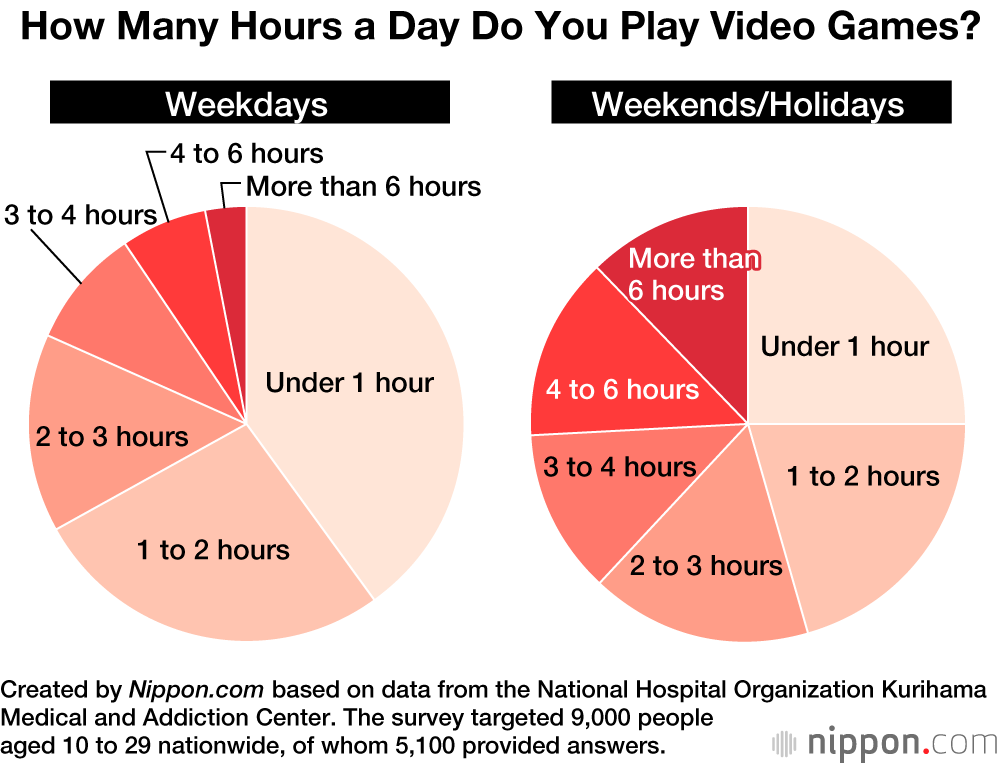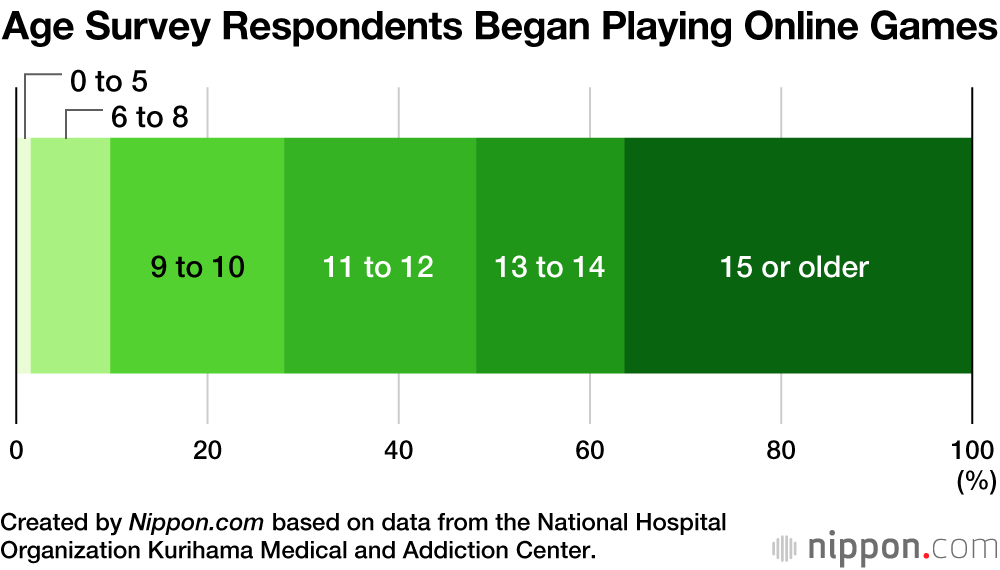
Concern Over Gaming Addiction Among Young Japanese
Society- English
- 日本語
- 简体字
- 繁體字
- Français
- Español
- العربية
- Русский
The first survey in Japan on “gaming disorder” found that 18.3% of young people aged between 10 and 29 play video games for an average of three or more hours a day. People who spend extended hours playing video games are more likely to become addicted, which can interfere with their lives and negatively affect their health. The survey was conducted by the National Hospital Organization Kurihama Medical and Addiction Center in Kanagawa Prefecture with support from the Ministry of Health, Labor, and Welfare.
Among those surveyed 85% (92.6% male and 77.4% female) had played video games within the past 12 months. A survey question that allowed for multiple answers found that the most popular gaming format, used by 80.7% of those surveyed, was the smartphone, followed by home video-game consoles at 48.3% and hand-held game consoles at 33.6%. The overwhelming majority of survey respondents, or 97.6%, responded that one of the places they played games was at home.
While 21.9% of those who play for less than an hour a day said that they often cannot stop when they should, this percentage shot up to 45.5% for those who play six hours or more. Around 30% of the heavy gamers in the latter group also said that their playing has noticeably diminished their interest in important activities like sports, hobbies, and spending time with friends and family members.
| Average daily time spent playing video games | Cannot stop playing when they should | Interest in other activities declined due to games |
|---|---|---|
| Under 1 hour | 21.9% | 2.9% |
| 1 to 2 hours | 28.5% | 6.9% |
| 2 to 3 hours | 32.7% | 11.1% |
| 3 to 4 hours | 34.7% | 10.0% |
| 4 to 5 hours | 43.3% | 22.4% |
| 5 to 6 hours | 37.4% | 20.3% |
| 6 or more hours | 45.5% | 28.9% |
Created by Nippon.com based on data from the National Hospital Organization Kurihama Medical and Addiction Center.
Around 40% of those playing six or more hours of video games a day also reported that they continue despite physical problems like backaches, sore eyes, and headaches, or mental issues like sleep disorders or depression.
Around half of preschoolers and elementary students have already begun to play online games. Adults should set a good example by demonstrating proper self-control themselves.
(Translated from Japanese. Banner photo © Pixta.)


